OUR TEAM
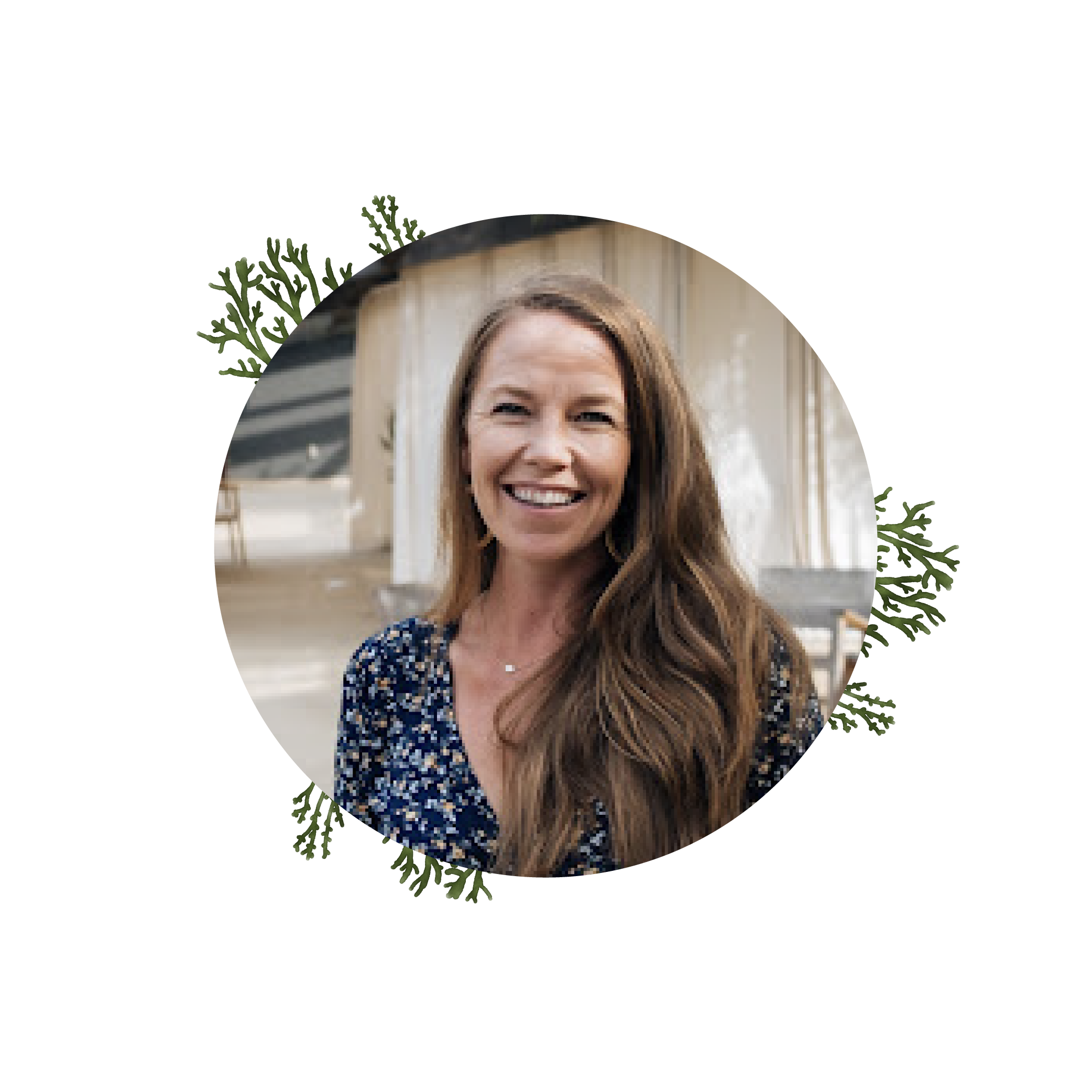
Kimberly Orias
Executive Director
A San Diego native, Kimberly comes with a richness and diversity of experience in business, teaching, and not-for-profit work. Kimberly has been identified as a trusted and dedicated leader, a nourishing communicator and a joy to be around. She loves traveling and tasting food from around the world and is happiest feeding the people she loves.
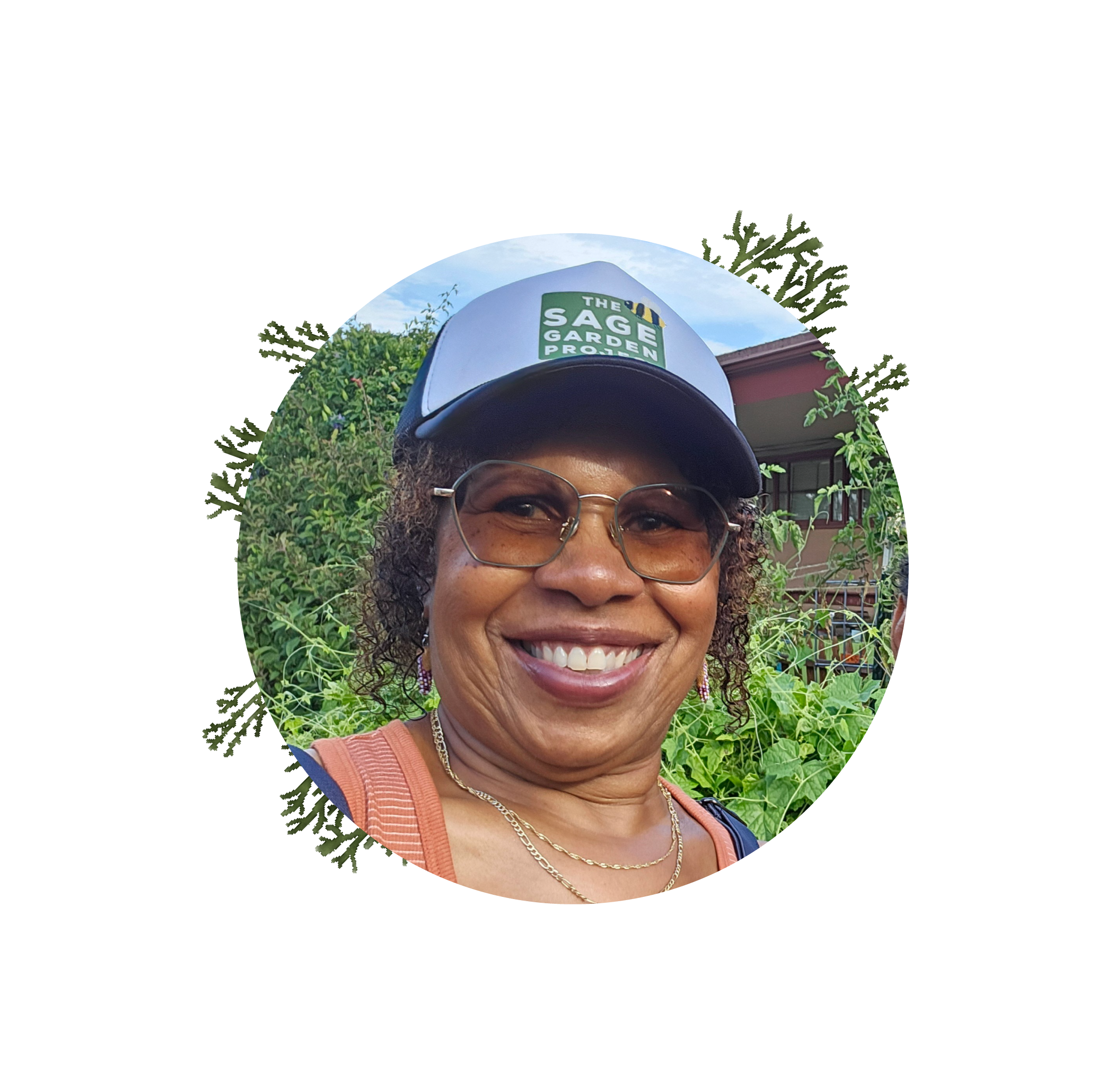
Emalyn Leppard
Garden Coordinator

Loren Nordin
Program Manager
Loren is a San Diego native with a love of plants as well as systems. She’s a graphic designer and administrator who is tech savvy and enjoys helping others learn how to use the digital world effectively. She’s also a studying Herbalist and hopes to use the garden and the plants that grow there to support others in holistically nourishing themselves and their communities.
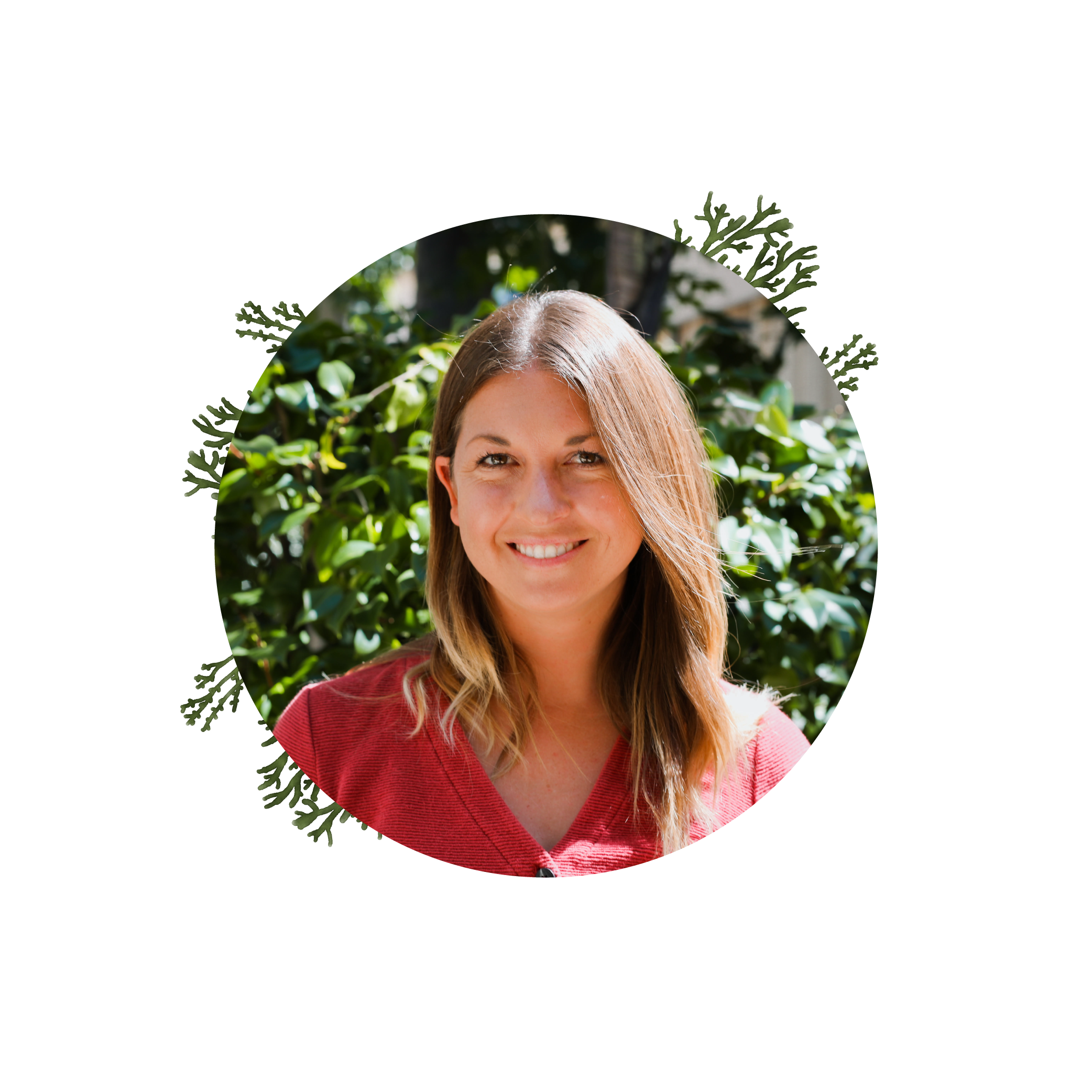
Erin Griffin
Research Specialist
Regional Trainers
Here at Sage Garden Project, we pride ourselves on not only providing funding and curriculum to school garden & cooking programs but also ongoing technical & implementation support to our schools and their educators. In 2020, with over 65 Sage funded school garden and cooking programs located throughout California, we decided to create regional groups to better serve our school communities and form a network of geographically close schools that offer support to each other. We are honored to have each group led by a Sage Regional Trainer, a dedicated and trained leader for the schools in their region. Our Regional Trainers lead monthly meetings, help build community and connection, and are an invaluable resource for the schools they serve and a beloved part of the Sage Garden Project family.
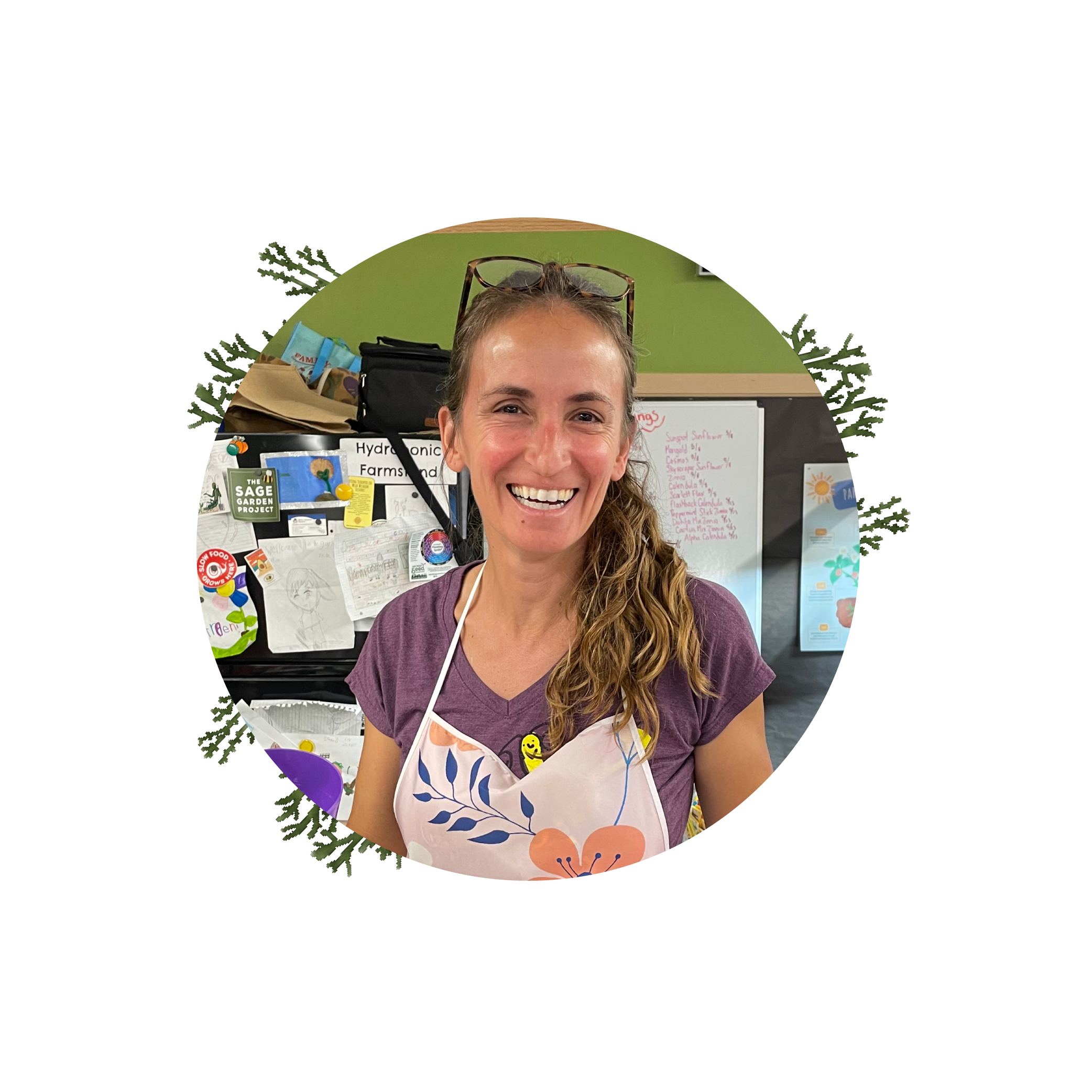
Jessica Eves
Regional Trainer – Golden State Educators
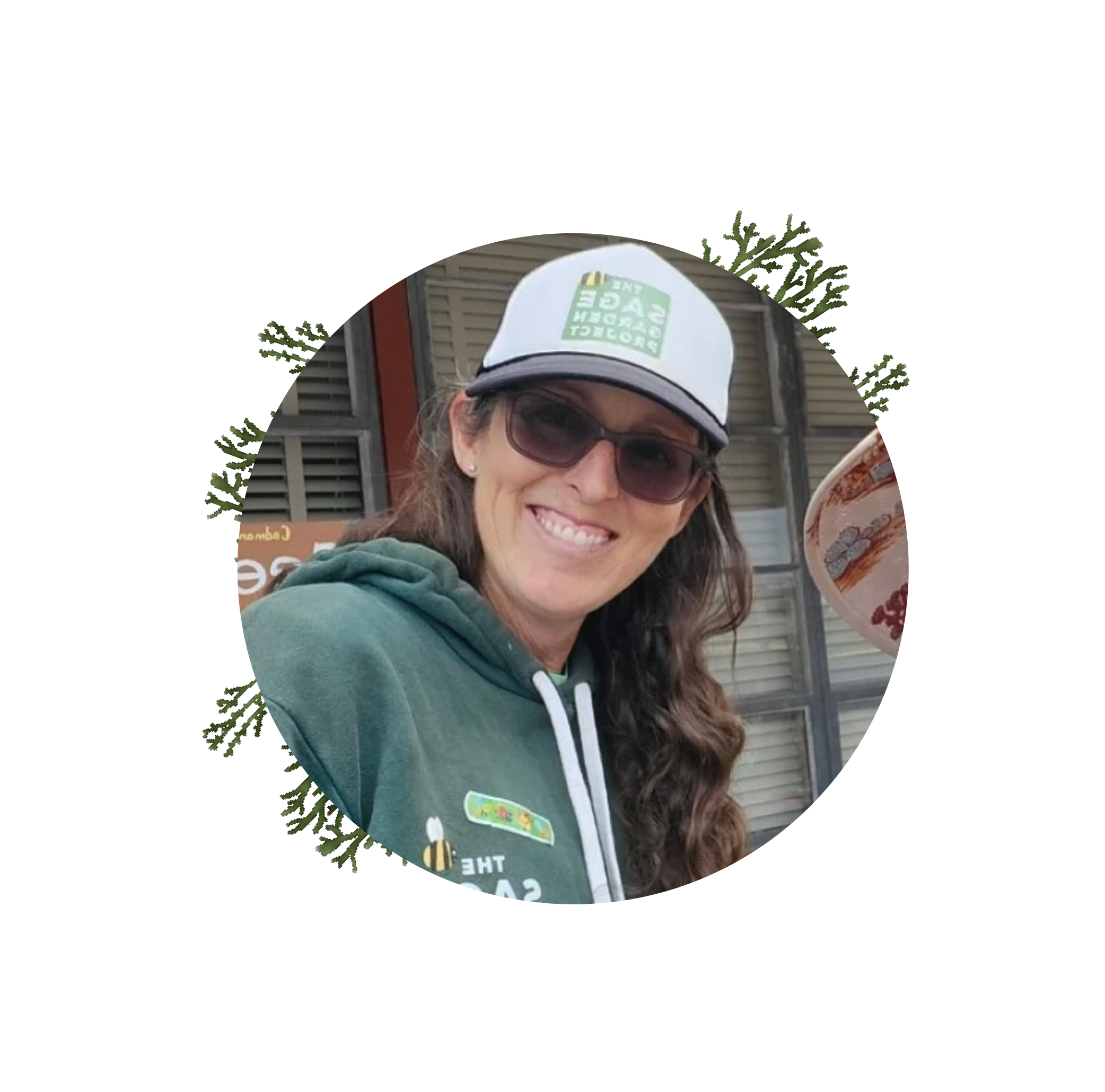
Judey Petix
Regional Trainer – Good Thymes with Sage
Feeding Curiosity™
A Letter from our founder
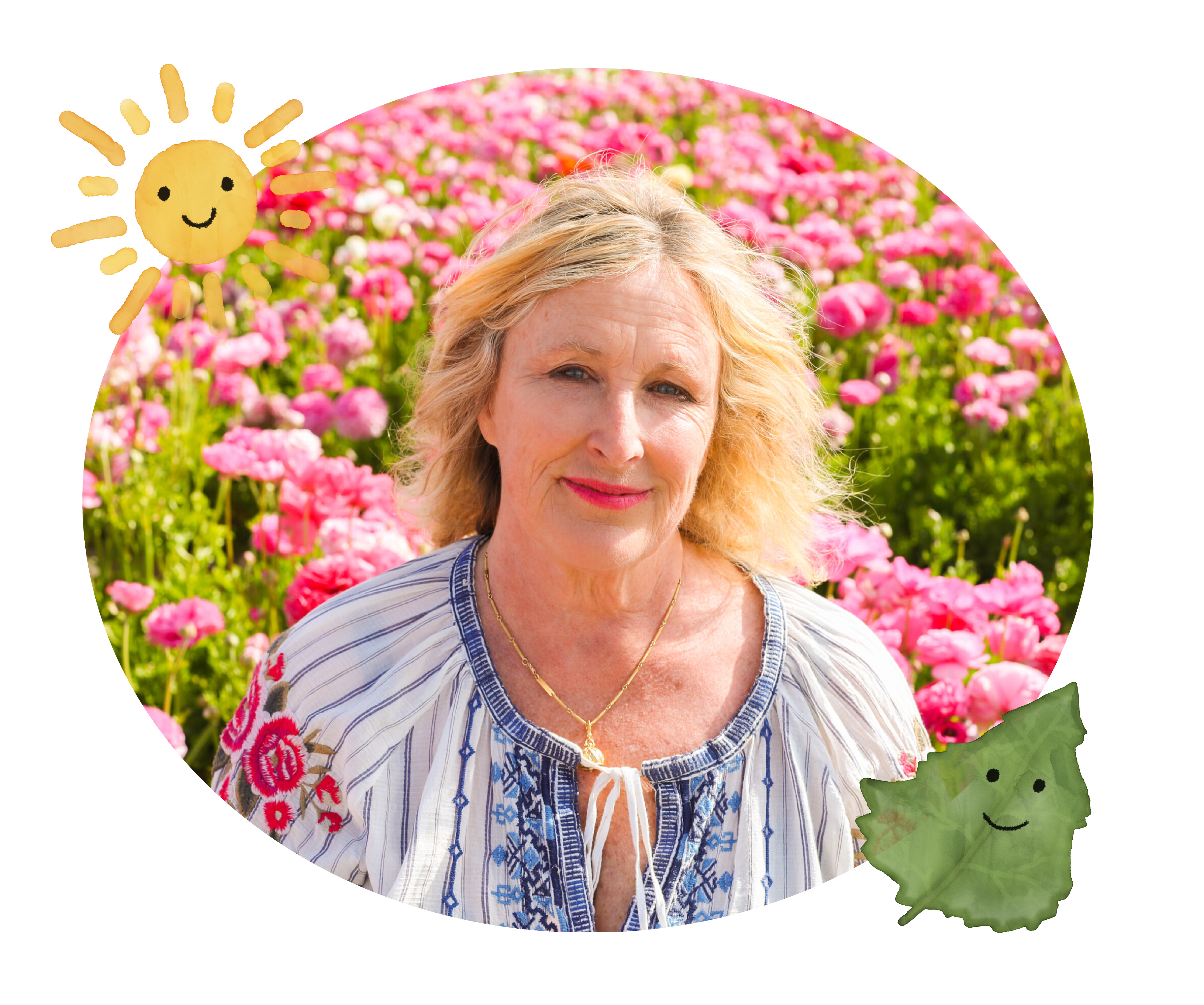
Sage Garden Project is our California elementary age educational program, supported by a twelve year and fourteen million dollar investment of the Wild Wisdom Foundation, a San Diego-based philanthropic organization. My passion as its founder is to create equanimity, support & respect for all learning styles by employing our original experiential cooking and gardening program. Our program funds salaries and trains dedicated teachers and has currently funding programs in 64 California elementary schools.
As a nation, we universally recognize the mental and physical health emergency that is impacting our kids. However, our educational systems do not reliably support programs that allow students to learn the practical skills of cooking and experience direct connections to nature in the garden, which nourish them both mentally and physically. In the schools we’ve supported, we see students who have had six years of experiences in the garden and kitchen, layered and reinforced year after year, build the skills and knowledge to cook and grow their own food- unlocking the possibility for positive health choices.
These students have also had their hands in the dirt, planting and harvesting while connecting to nature and learning in the deepest way possible about the importance and results of the choices they make. We teach every subject in the kitchen and in the garden, and the response from our students has been simply amazing. Schools, families and communities can experience true food culture transformation- the cascading results and potential inspires us!
Experiential learning crosses all human boundaries; culture, language, learning abilities and styles and is the best way, in my opinion, to create equanimity in our educational systems.
We have tried over the years to engage school districts to step in, after years of our funding, to support the educators that we have trained and who have proven time and time again their worth to the students and school community. Unfortunately, most schools cannot find enough financial support from districts or other granting bodies necessary to keep programs like these afloat without our continued support. It is a rare success story when a school graduates from our funding with a sustained program.
Dedicated teachers are the key to sustaining consistent programs. Volunteers, parents, teachers and students start many fantastic gardening programs- but, inevitably, they tend to fail over time without a dedicated teacher involved. It is also rare to find cooking programs in elementary schools where we do not fund- and we consider this to be an essential addition to gardening in order to help students develop real skills that build the self-efficacy they need to make nourishing choices. We provide every new school with a fully outfitted mobile cooking cart that can be used in the garden or in classrooms. This has allowed us to create a synergistic cooking and gardening curriculum that brings curiosity, wonderment, excitement and confidence to the students of our educational offering.
We are honing and focusing our program this year to collect metrics that schools can use to ask districts to obtain funding for their teachers and programs, and we hope this helps to close the gap so that all California elementary students can be on course to receive this essential experiential education. On a very hopeful note, many leaders in California politics value programs like ours and understand its potential for improving mental and physical health for our culturally diverse population.
“Survival of the fittest” is a harsh way to educate our students. Perhaps a thoughtful step back in our thinking is “thriving of the nourished.” We celebrate and appreciate all those who approach education with a focus on the need to provide nutrition to the minds and bodies of our children with equality.
Annie Dunne

After 6 years teaching as a garden cooking instructor, I personally understand the profound importance and impact programs like ours have on students, families and the school itself. I had the honor of teaching a community affected by the immense hardship of homelessness; however, the struggles of my students were not that different from those of any young person. They were all hoping to go to school and feel safe, important and smart. Garden and cooking classes were able to provide just that. No matter where a student was academically, working in the garden or cooking with classmates provided a space where students felt successful and smart, both of which were so important to their view of school. The experiences students have in these classes helps them practice life long skills that not only will make it easier for them to nourish and care for themselves but feel confident navigating the world around them. I wholeheartedly believe that these programs can provide the joy, safety, connection and skills that our youth so deeply need. I am so honored that I have the opportunity to lead the team at Sage Garden Project as we diligently research and develop programs that will hopefully one day mean every child gets to experience the joy of gardening and cooking in school.
Kimberly Orias
Sage Council

Annie Dunne
Ph.D, Founder & CEO
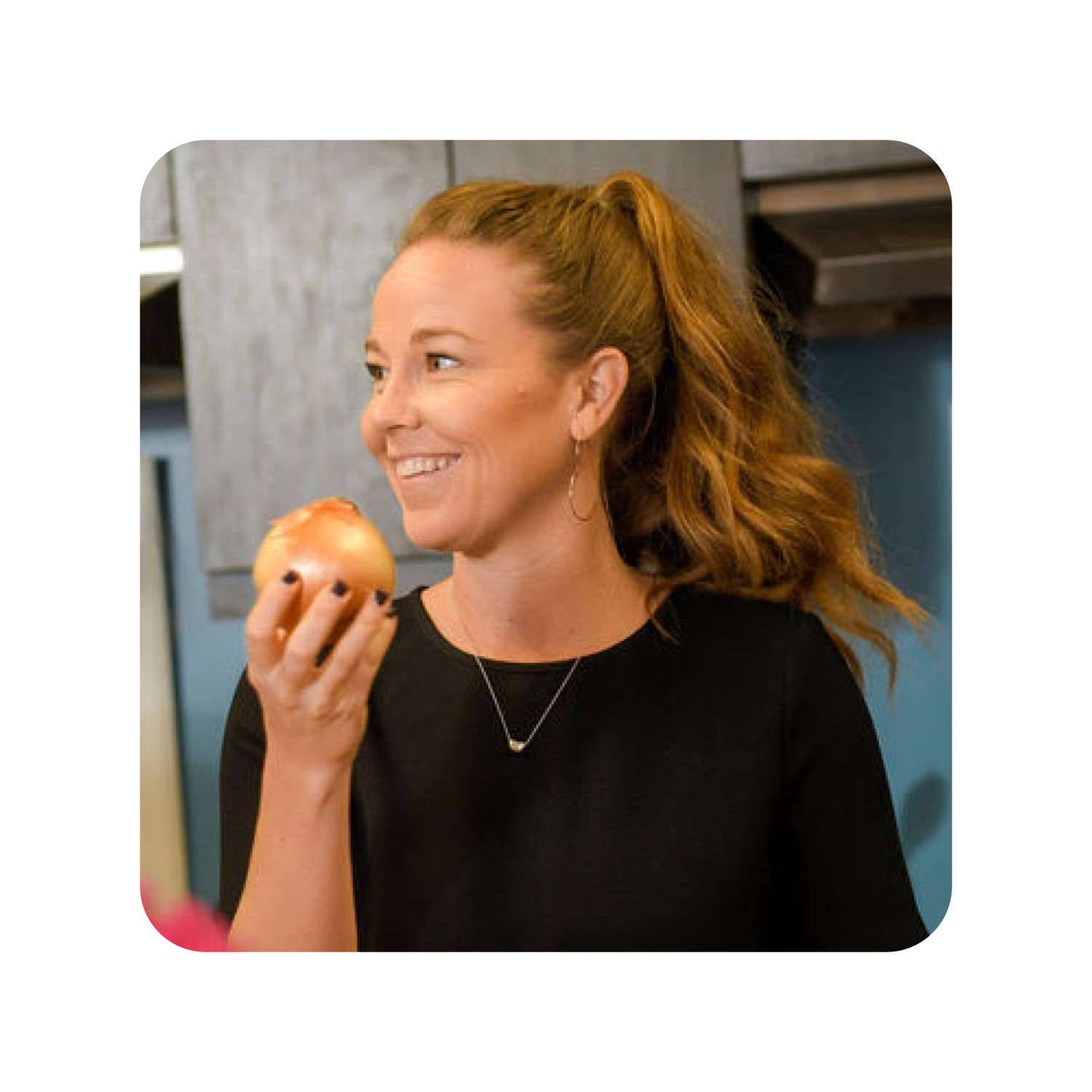
Kimberly Orias
BA Education, Executive Director
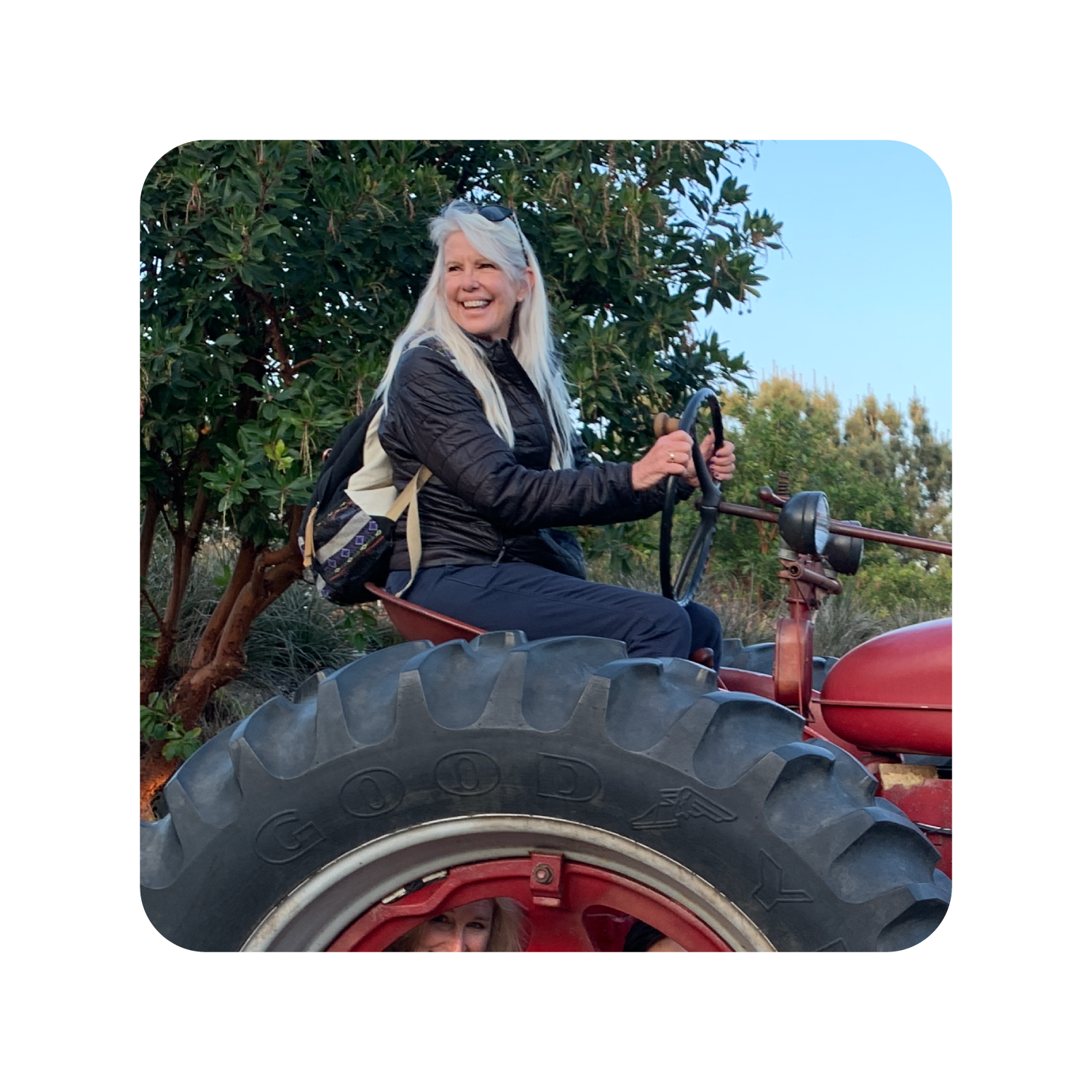
Karen Saake
BA Business, SD County Master Gardener, Associate Director, Training Mentor, Garden Program Director
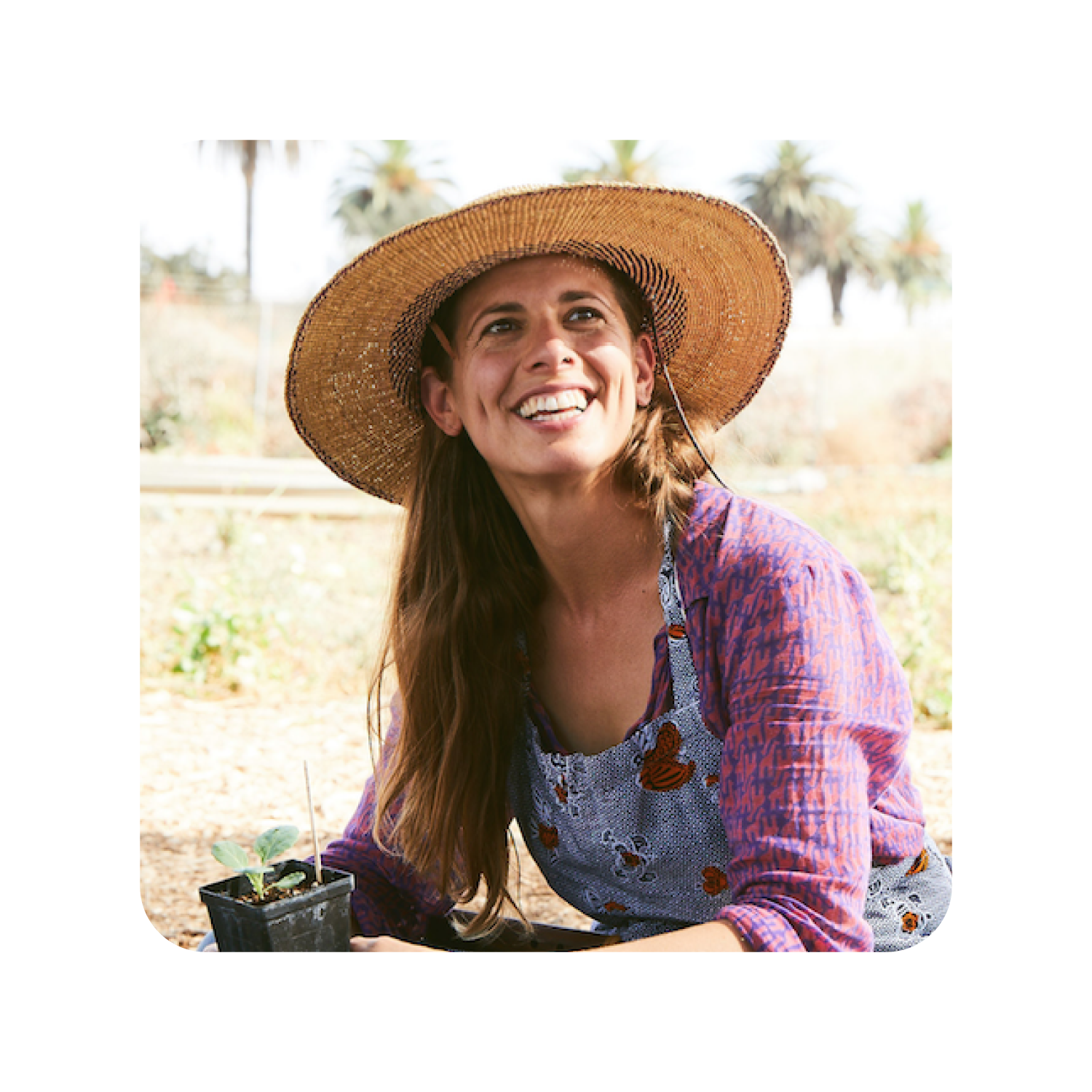
Meg Handler
Ph.D, Strategic Planning, Cultural Enrichment Advisor
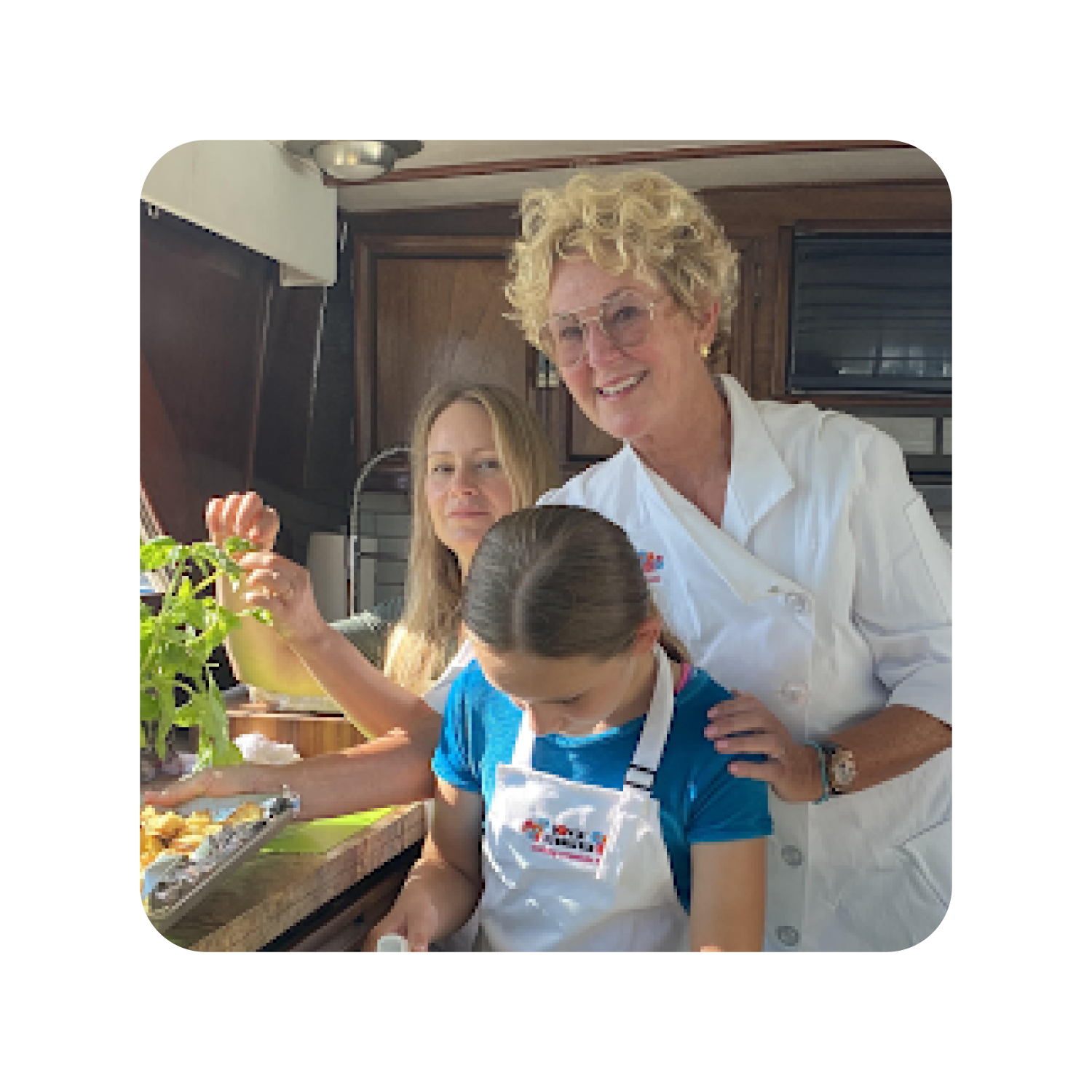
Carole Jensen
M.Ed, Personal Chef, Education Consultant, Curriculum Specialist and Regional Trainer
